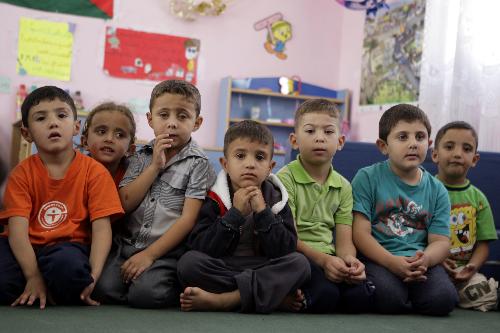The EU and UNICEF are stepping up their efforts to improve the quality of education for all children in Libya by conducting a “Situational Analysis of the Libyan Teaching System”.
This initiative should form the starting point for the establishment and implementation of policy relating mainly to teacher development, and one more critical milestone for the strengthening of the education sector in general.
The analysis focuses specifically on issues related to teacher development, including the over-supply and surplus of teachers already in the system, an elaborated definition of roles for teachers and other staff, a more inclusive approach to child-friendly educational provision at school and classroom levels, expansion of pre-school provision nationally, and the revision of the in-service teacher education curriculum with particular focus on classroom management.
The analysis also covers issues relating to the wider education sector and will provide the basis for policy formulation initially, followed by the implementation of selected measures in a strategy for teacher development.
“The European Union is very pleased to be a partner in this effort, given that quality education is key to human capital development,” said Ms. Natalia Apostolova, Head of the EU Delegation to Libya.
“Equity-based approaches to education involve removing barriers and bottlenecks, within and outside the education system, for all children to access quality learning opportunities,” said Carel de Rooy, UNICEF Libya Country Director.
The analysis is implemented in close cooperation and coordination of the Ministry of Education and the General Centre for Teachers’ Education and Development. “The analysis provides a clear picture regarding the status of teachers in terms of their financial security and capacity building needs,” said Ms. Um-Alkheir Muftah, the Director of the General Centre for Teachers’ Education and Development at the Ministry of Education.
Moreover, “the establishment and development of a Libyan national team that worked closely with international experts has enhanced the capacity of The General Center for Teachers Education and Development to undertake similar educational analysis in the future,” she added.
(Source: EU Neighbourhood Info)





